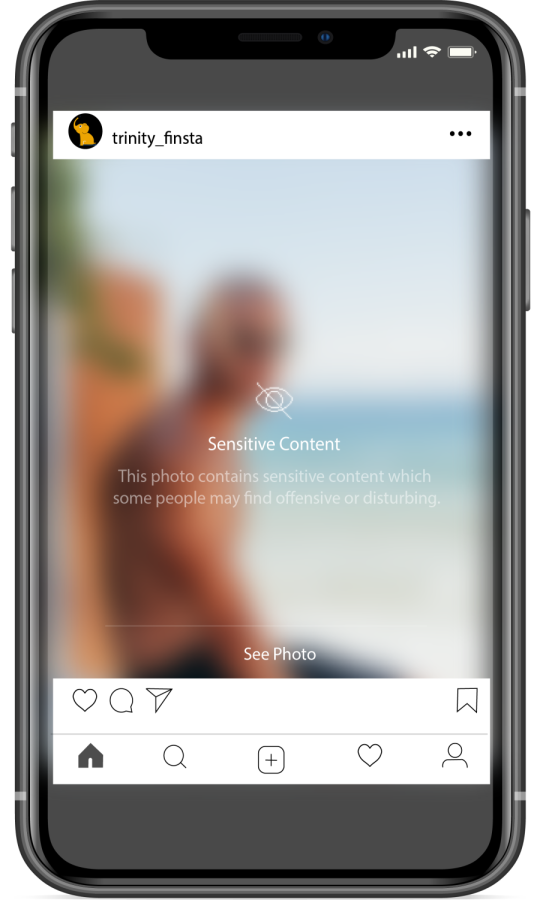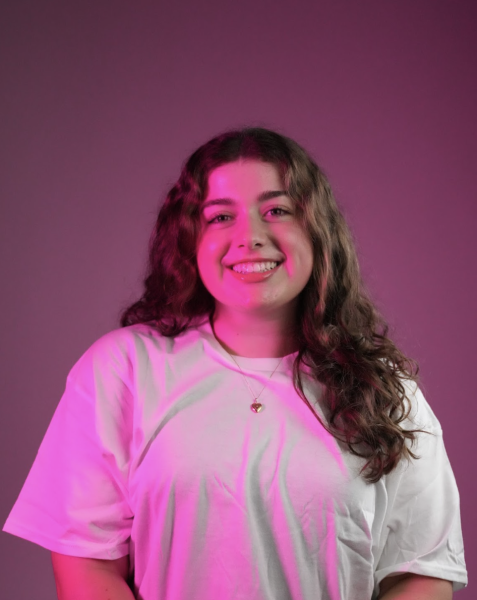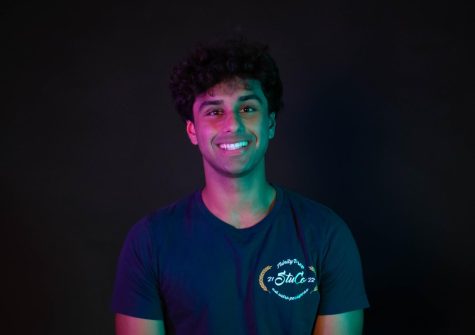Social media companies have increasingly used bans as a method to beat back controversial speech. According to WIRED in 2021, Twitter banned 925,000 in the first half of 2020. This has caused users to wonder where the boundary is, and if it infringes on their freedom of speech. DeStefano defends that bans are an effective way to regulate speech, while Prakash takes on a stance that banning has gone too far.
PRO: It’s time to monitor the Manosphere
Accumulating over four million followers on Instagram alone, Andrew Tate seemed inescapable on social media. His provocative content ranged from “hustler” tips, where he taught his followers how to make money, to violent messages concerning women.
“Women can’t drive…If it upsets people, tough, that’s my personal experience” said Tate on a Twitch stream earlier this year.
His social media reign came to an end when Facebook, Instagram, TikTok and YouTube banned him on August 22, following Twitter banning him in 2017. Although his mass amount of supporters made him a hot topic, Tate’s message is not a rare one. There has been an increasing normalization of violence, especially against women, on social media platforms. Researchers of this online violence against women have coined the term “manosphere” to refer to the corners of the internet that have grown especially hostile towards women. The Economist Intelligence Unit reported that out of 4,500 interviewed women across 45 countries, 85% had experienced or witnessed online abuse.
Tate’s social media ban wasn’t a first, either. Apps have been temporarily suspending or permanently banning users for years, with examples ranging from conspiracy theorists like Alex Jones to American rapper Azealia Banks. These media corporations have already utilized their community guidelines as a tool to stop disinformation and violence, especially during the pandemic.
While there has been adequate motivation for media companies to ban violent speech against women, it hasn’t been a priority for many platforms. Instead of tackling the digital manifestations of violence against women, social media companies turned to dealing with COVID-19 disinformation. After proving that bans could work to control harmful online speech, platforms still haven’t taken this avenue of action seriously for women.
“We would like to see gender-based online violence treated at least as seriously as disinformation has been during the pandemic by the platforms,” said Dr. Julie Posetti Posetti said in a 2021 article by the BBC. Posetti led research for the International Center for Journalists global study on violence against women journalists.
Although the current banning process is imperfect, both message extremity and follower buildup can be diluted through bans. Content creators must abide by platform guidelines, especially with the threat of a ban in place. Additionally, bans stop posts from reaching users who have not yet been exposed to violent language or messages.
Critics of social media bans fear that their First Amendment rights could be at risk. Since these social media platforms are private corporations, they have no obligation to constitutional rights. Additionally, Dr. John Hanley from the University of Central Florida’s School of Politics, Security, and International Affairs, explains that given the diverse public and robust judicial enforcement of the freedom of speech, he’s not worried of social media bans spilling over into other implementations of the first amendment.
There is also a big profit incentive for these platforms to beat back hate speech. With users threatening to leave apps over the controversy created by Tate, platforms had to adjust accordingly to accommodate a larger audience. When these apps conform to current social standings, it’s more justifiable for them to punish people the public deems as bad.
“[Social media platforms] have a need to regulate speech on their platforms to make it profitable,” Hanley said.
While the mass social media bans Tate experienced were in good effort, banned users can still travel to other platforms where smaller audiences can still hear the extreme messages in a more concentrated manner. One example of this is social media app, Gab, where neo-Nazis, white nationalists, anti-Semites and QAnon conspiracy theorists find followers. These messages tend to become more violent, due to a smaller amount of backlash from other users.
While these bans do not completely eradicate misogyny from our lives, banning harmful messages on social media sets a good example of what we should tolerate online. This inherently violent speech does not deserve to be defended, protected or normalized. Social media platforms have a responsibility to stand up against violent rhetoric to protect their users.
CON: Social media bans are not working
In a span of three days, every social media platform banned Andrew Tate, an internet personality, for violating terms of hate speech and promoting misogyny and violence. In the months prior, Tate rose to fame through Tiktok and numerous podcast appearances. His messages comprised a variety of controversial beliefs, such as “women can’t drive” and that assault victims are responsible for their attacks.
When it comes to terms of agreement, all social media companies fall on a spectrum of strictness, with a family-friendly platform like YouTube being very strict and an open platform like Reddit being very lenient. Still, every platform’s basic protections cover to some extent, the topics of hate speech, misinformation, harassment, and obscenity.
With these regulations in mind, we take a closer look at banning, why a social media platform might do it, and why it is not the best way to monitor a platform.
The bans you mostly hear about, such as Andrew Tate or Donald Trump, are not single cases. According to Wired, in the first half of 2020 alone, Twitter suspended roughly 925,000 accounts for rules violations. And that is just one platform in a six-month period. Bans happen everywhere and everyday, even on companies like Yelp and Tripadvisor.
So how is it decided who will receive a permanent ban, a temporary one, or receive one at all? It seems to be a mix of a variety of things, with popularity and audience being the biggest factors.
When someone is permanently banned, they lose access to their entire account. Their followers, posts, history, are all gone. For smaller accounts, a fake name or persona might be their only ticket back to the platform. For more well known characters, however, they are bound to get shut down again.
Social media companies are in the business of making money, and thus, are effectively controlled by advertisers. If a platform becomes too populated with inappropriate content, the advertisers will take their money elsewhere — they don’t want to be associated with a bad image.
There is a much better alternative to bans — delete posts. Companies already have algorithms and people who flag and delete certain posts based on content. Instead of banning a person, delete individual posts that violate rules. This way, before the post picks up traction, it won’t affect or upset anyone. The creator still has a platform, their viewers are happy, and advertisers won’t be turned away.
This is important, as social media companies have a legal right to restrict your speech and have a monopoly over some of the world’s most vital communication platforms. So, if someone is permanently banned, their voice is taken away almost completely and it becomes very difficult to express their opinions ever again to such a large audience.
Some celebrities don’t receive permanent bans, but only temporary ones or none at all. While social media companies want to keep advertisers happy, they also realize that celebrities are a major contributor to traffic on their website. Everyone wants to keep up with Harry Styles or Drake, and if either was removed from Instagram for example, it would turn away millions.
On October 10, Kanye West was locked out of Twitter for tweeting that he was going “death con 3” on Jewish people. “Death con 3” refers to DEFCON, an alert state used by the U.S. military. If West is permanently banned, one of the most influential artists of our time will lose his voice on one of the biggest platforms in the world. It may seem that since his reach is so wide, one platform ban would be inconsequential. But that is not the case at all.
This is a perfect example for being punished for being influential. If I, personally, had tweeted the same anti-semetic things, I most likely would not be banned. I have two followers on Twitter and Kanye has 31 million. I simply do not have enough of a following for Twitter to even bat an eye at what I post.
This bias towards larger creators is proven by the fact that far more offensive things than what Kanye said float around on smaller accounts on Twitter.
By deleting posts, bias towards creator’s with more popularity is resolved. Algorithms and staff can work towards deleting posts with certain phrases and keywords, no matter the person. I can no longer tweet the same thing as Kanye West and not suffer consequences. And Andrew Tate will have his platform back and can freely voice his opinion as long as it’s not going against the guidelines.











